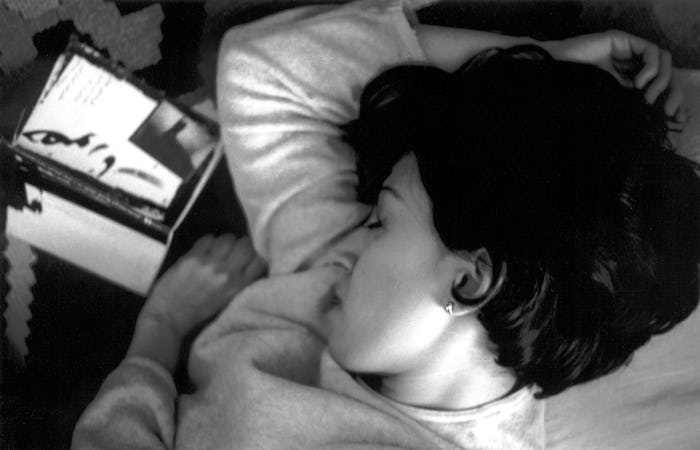Life

The One Thing You Can Do To Get A Better Night's Sleep Tonight
There is a reason the term "sleep like a baby" exists. Little ones seem to enjoy the most luxurious of slumbers. Is it possible that adult life makes it difficult to get the type of sleep that energizes us for the day ahead? It definitely is harder to sleep like a baby when you're a grown-up, but not impossible. When it comes to catching Z's, there is one thing you can do to get a better night's sleep — and it just might change your life.
Whether you suffer from tossing and turning, or you just can't seem to power down each night at a decent hour, the end result is the same: you feel like it will take a crane to pull you out of bed in the morning. Poor quality and small durations of sleep can leave us feeling exhausted when it's time to wake up, and you can only tap the snooze button so many times until you run out of time to shower. Settling in for a solid night of sleep and waking up refreshed can be attained simply by doing one thing: regulating your circadian rhythm.
The circadian rhythm, also known as your internal clock, is the key to sleeping better each night. According to Psychology Today, your circadian rhythm regulates sleep and wakefulness over a 24 hour time period. It tells your body what to do all day long, and listening to these messages can make a difference in your sleep and overall health. Especially when your body tells you it's time to get some shut eye.
Unfortunately, many people ignore the nudges of their internal clock for so long that it becomes completely out of whack, which is why you find yourself yawning in the afternoon and reaching for that third cup of coffee. But that doesn't mean you can't get back on track with a little discipline. An article on Forbes reported that it is possible to reset your circadian rhythm and retrain your sleep habits. And although the remedy sounds easy on paper, it takes dedication to see the results.
It turns out, going to bed and waking up at the same time each day will set your circadian rhythm, which will in turn provide you with better quality of sleep each night. As sleep expert Helene Emsellem told NPR, even if your even if your schedule varies, aim to shut those eyes at the same time every night. If this sounds like nothing short of impossible for your lifestyle, Dr. Emsellem suggests napping —but for no longer than 90 minutes and always before 3 p.m. , so it doesn't interfere with winding down at bedtime.
Another way to stimulate and boost the effects of a regular circadian rhythm is with the use of a light therapy box, which uses artificial light to simulate sunlight. Circadian rhythm expert, Dr. Alfred Lewy, reported in Psychiatric Times, exposure to light therapy after waking can help to reset your internal clock for sleep. This may be especially helpful for people who are having trouble keeping a consistent bedtime, as it will help to make falling asleep at the same time each night easier over time.
If you've tried everything in the name of a better night's sleep, and still come up tired, this may be the solution you've been seeking. It's straight forward, free, and proven to work — but like with any new habit, it's going to take practice to become perfect. Setting a bedtime and sticking to it may require a hard look at your Netflix binge watching tendencies, but in the long run, the glorious sleep will be worth it.
Images: Pejman Parvandi/Flickr; Giphy (2)